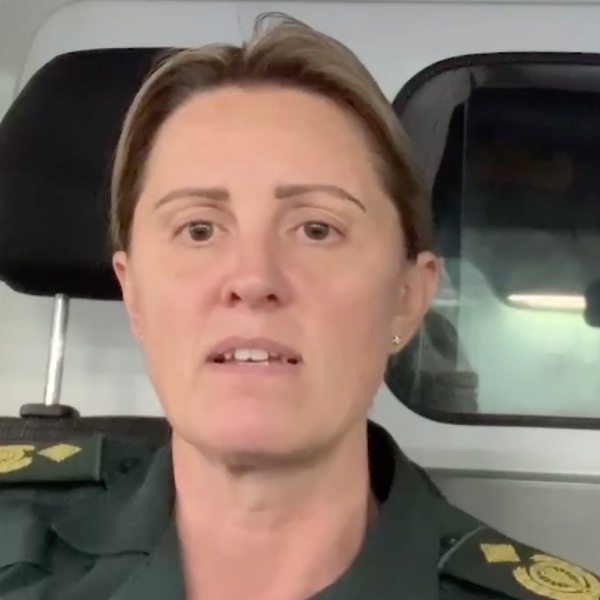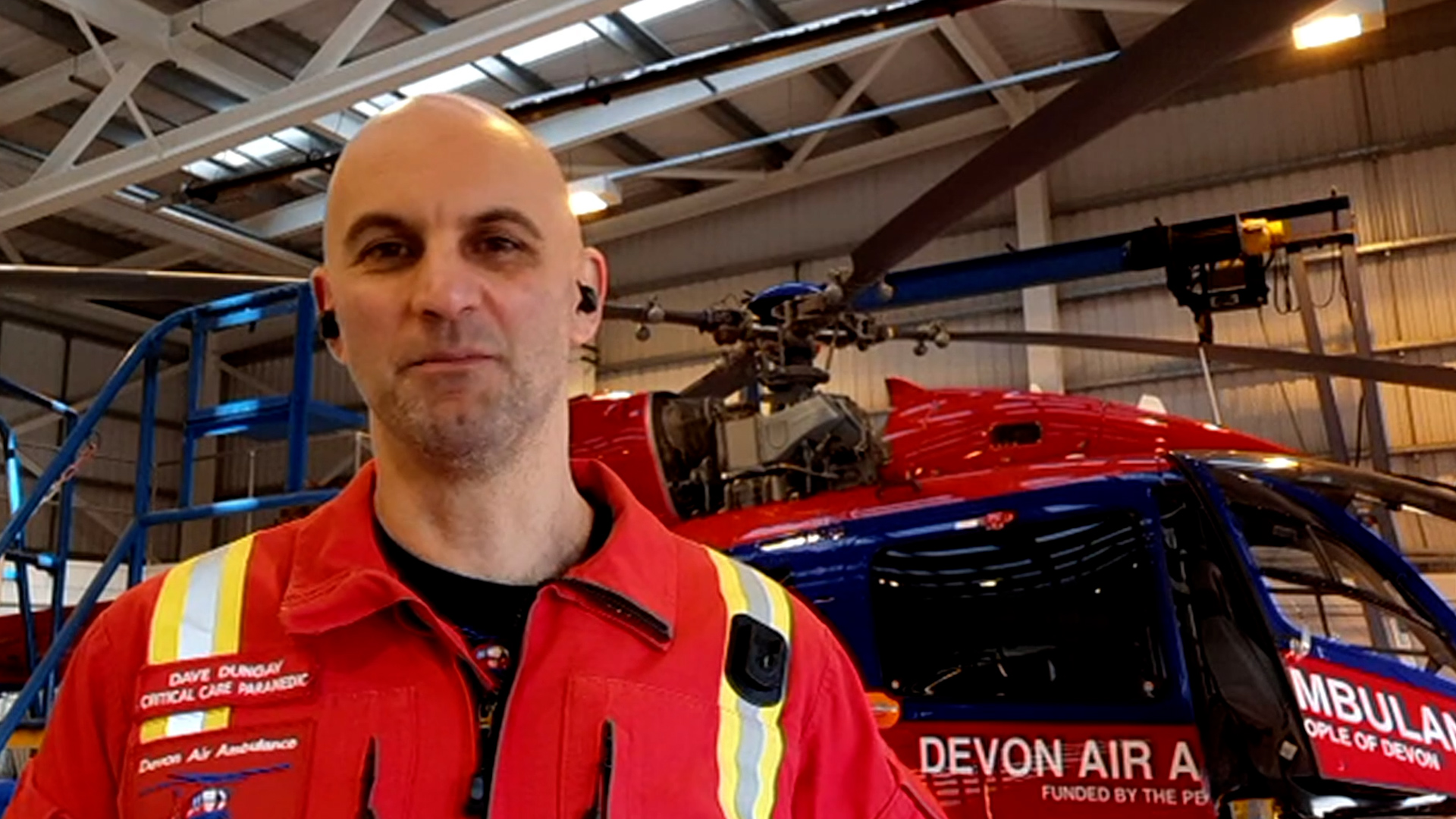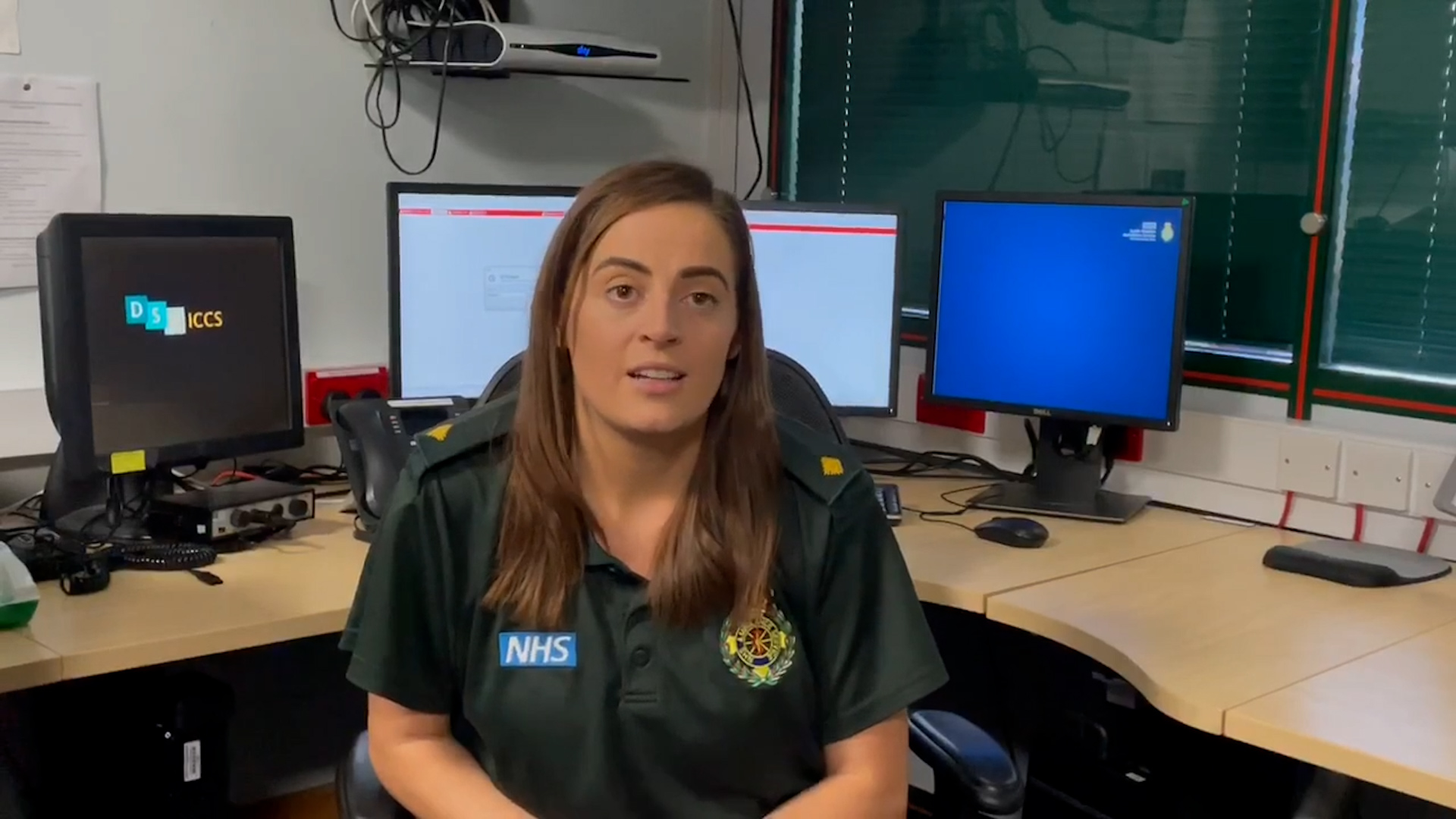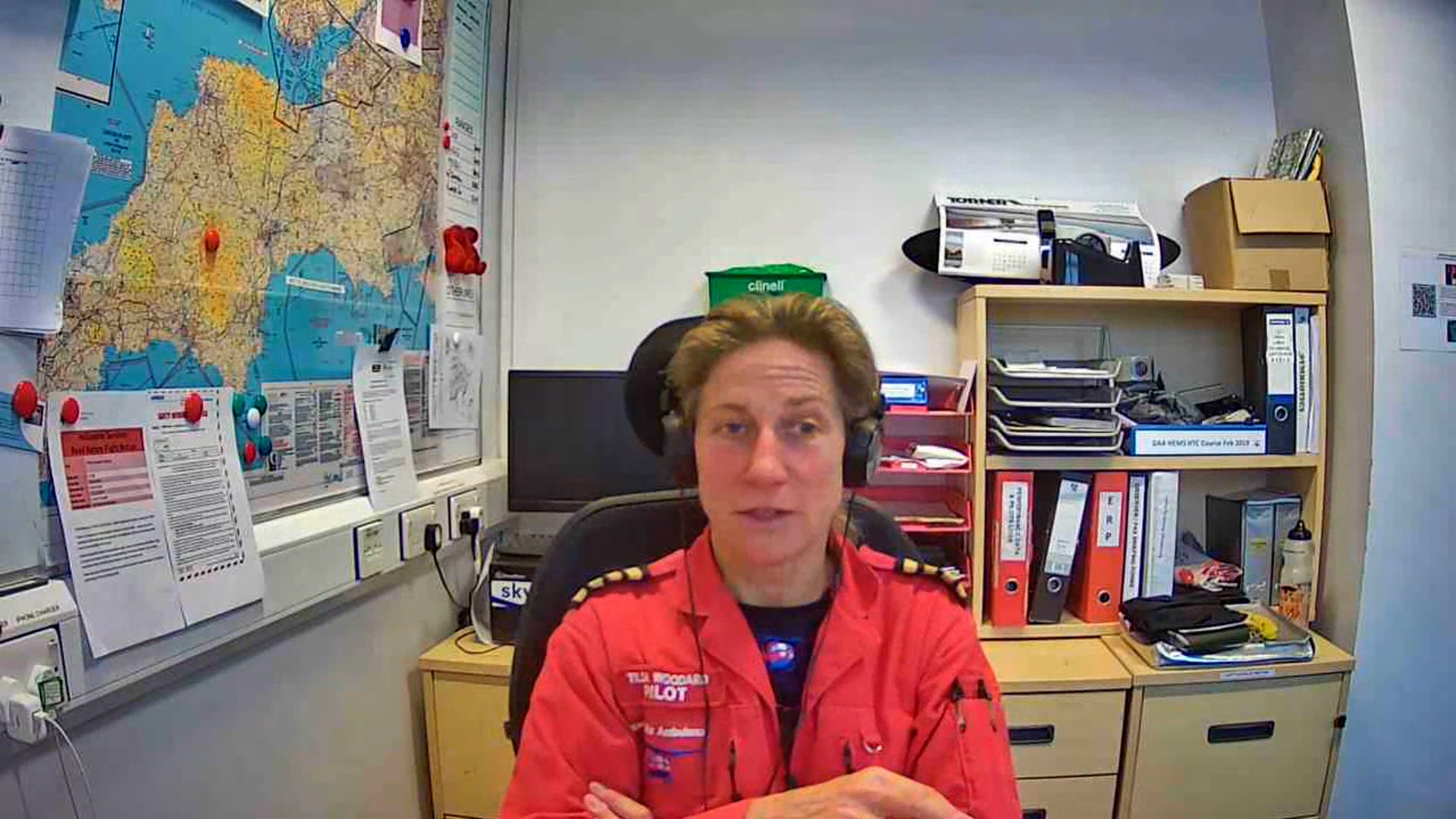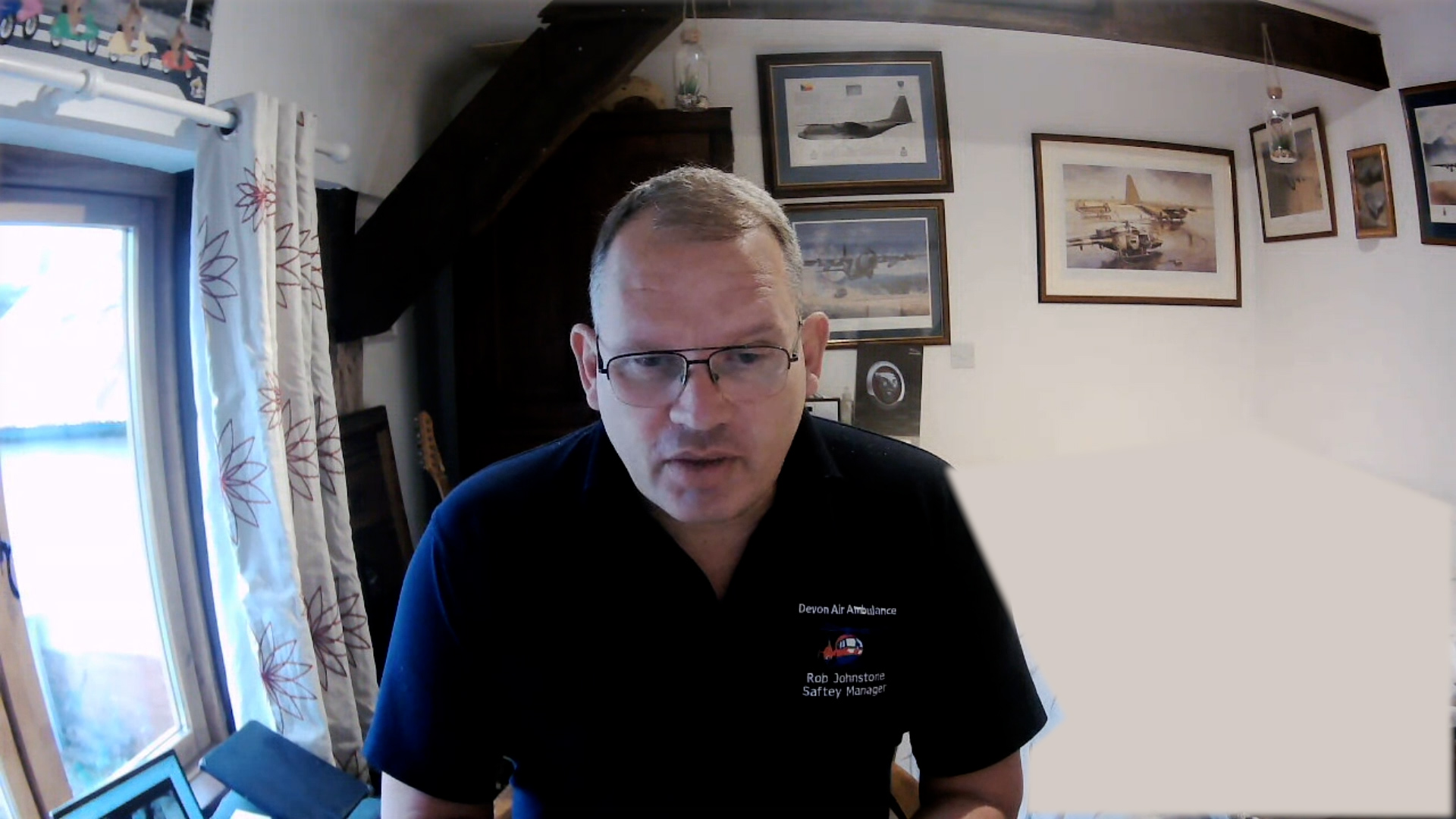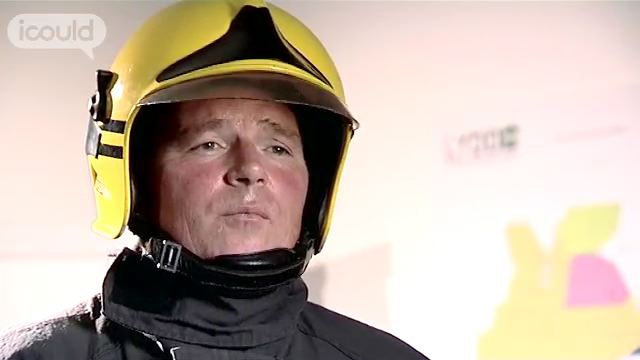Critical Care Paramedic
Devon Air Ambulance
00:00:06:24 – 00:00:08:10
Hello, my name’s Dave.
00:00:08:10 – 00:00:11:21
I’m a critical care paramedic with Devon’s air ambulance,
00:00:11:21 – 00:00:14:16
which means that we respond in a helicopter
00:00:15:06 – 00:00:18:08
and the car to patients that need emergency care.
00:00:19:08 – 00:00:23:02
So the best thing about being a paramedic and definitely critical care paramedic
00:00:23:02 – 00:00:27:12
in the ambulance is you just don’t know what your day is going to entail.
00:00:28:16 – 00:00:33:06
There’s absolute variety, you could be flying to one end of the county,
00:00:33:18 – 00:00:37:19
you know, on a coastal path, delivering care to a person or
00:00:38:19 – 00:00:40:06
treating someone in an urban setting.
00:00:40:06 – 00:00:44:21
It’s just absolute variety and quite exciting and challenging
00:00:45:01 – 00:00:47:20
keeps you on your toes. To be able to combine those two
00:00:48:02 – 00:00:49:20
and feel like I’m making a difference.
00:00:49:20 – 00:00:53:06
That’s what really makes this role.
00:00:54:00 – 00:00:57:02
When I joined the ambulance service quite a long time ago,
00:00:58:06 – 00:01:02:14
it wasn’t an academic route into the ambulance service – you joined and did some in-house training.
00:01:02:15 – 00:01:05:02
You still needed GCSE
00:01:05:21 – 00:01:08:06
English and maths at a Grade C.
00:01:08:12 – 00:01:10:15
Fortunately, I had that and then I was,
00:01:10:15 – 00:01:11:19
I progressed.
00:01:11:19 – 00:01:15:05
It’s been a long pathway to become a critical care paramedic,
00:01:15:06 – 00:01:19:05
and it started with my journey 20 years ago in the ambulance service,
00:01:20:07 – 00:01:24:02
first as a care assistant, then a technician, then a paramedic.
00:01:24:02 – 00:01:27:17
And then I was fortunate enough to apply and get this job.
00:01:28:02 – 00:01:32:07
To be a good paramedic, I think you need to be able to communicate
00:01:32:07 – 00:01:35:18
well and be able to interact with people.
00:01:36:09 – 00:01:39:24
It’s really about being motivated to go out and make a difference
00:01:40:07 – 00:01:43:14
better yourself and work together as a team.
00:01:43:23 – 00:01:47:01
So I think any kind of life experience will help you in this role.
00:01:48:09 – 00:01:51:07
Any interaction with the general public because you understand
00:01:51:07 – 00:01:54:16
how different people are and how they act in different situations.
00:01:54:24 – 00:01:58:17
For myself, having a kind of first aid,
00:01:59:07 – 00:02:03:00
you know, element to my time as a lifeguard definitely helped.
00:02:03:20 – 00:02:07:10
But I know people that have done a variety of different roles.
00:02:07:15 – 00:02:09:24
Some come from a military background.
00:02:09:24 – 00:02:15:04
Some have come from other health care settings like care homes or,
00:02:15:10 – 00:02:18:07
you know, working in hospitals as care assistants.
00:02:19:13 – 00:02:21:04
If you can
00:02:21:12 – 00:02:23:11
get those qualifications that give you options,
00:02:23:11 – 00:02:26:15
even if you don’t know what they’re going to lead to, then it
00:02:26:15 – 00:02:32:01
just allows you to walk through doors that may not even open to you otherwise.
00:02:32:01 – 00:02:35:05
Find out what works for you, find out what motivates you
00:02:35:16 – 00:02:38:02
and then say, ‘Well, where where does that take me?’
00:02:38:09 – 00:02:41:15
And generally, when you do that, the next opportunity arises.
“You just don’t know what your day is going to entail.” Dave really enjoys the variety and challenge of his work, as well as the sense that he’s making a difference. He worked his way up in the ambulance service to his current role as a critical care paramedic.
More information about Paramedics
The UK average salary is £29,813
There are 37.5 hours in the average working week
The UK workforce is 47% female and 53% male
Future employment
- Drives ambulance or accompanies driver to respond to calls for assistance at accidents, emergencies and other incidents;
- Assesses the nature of injuries, provides first aid treatment and ascertains appropriate method of conveying patient;
- Resuscitates and/or stabilises patient using relevant techniques, equipment and drugs;
- Transports and accompanies patients who either require or potentially require skilled treatment whilst travelling;
- Briefs other medical staff when handing over the patient, and completes patient report forms describing the patient’s condition and any treatment provided.
